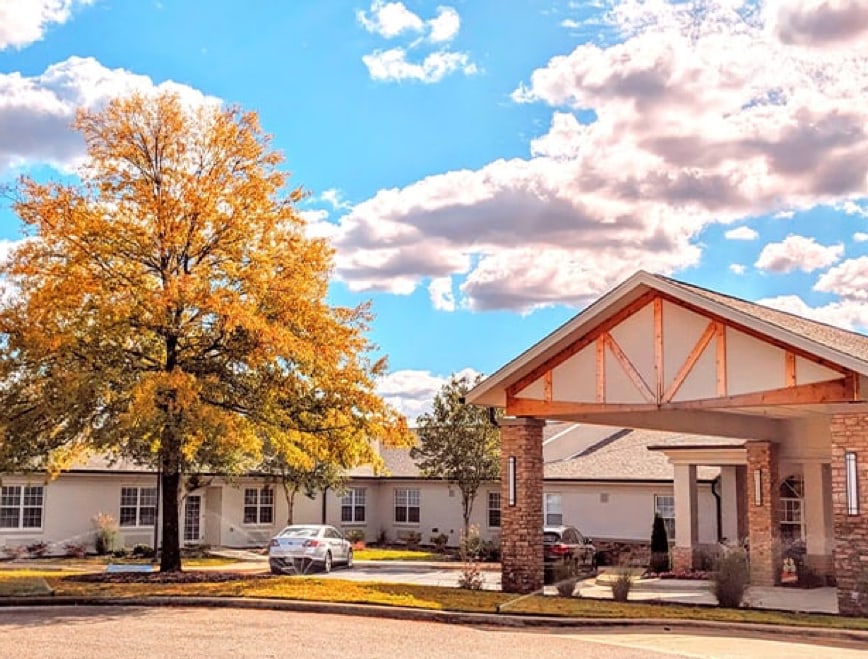Starting a conversation with your parents about assisted living can be difficult. Nonetheless, it’s important to have the conversation early. Doing so gives your parents a chance to be involved in choosing an assisted living community and a timeline for moving in.
When talking to your parents about assisted living, it’s important to stay focused on your parents’ needs and approach the conversation with empathy. Your family is a team, and working together makes it easier to meet your parents’ needs.
Why Talking About Assisted Living Is Important
It’s not unusual to delay discussing assisted living until there’s a health crisis or an urgent situation. But waiting too long to make the transition can limit your parents’ options and cause unnecessary stress. Proactively bringing up the topic allows you to explore different options together, plan ahead financially, and ensure your loved ones feel empowered in the process.
The First Conversation
The process of finding an assisted living community starts with one conversation. However, it’s this first conversation that can often feel the hardest. Choosing the right time to broach the topic and approaching it with empathy can make it easier to break the ice.
Find the Right Time & Place
Timing and environment matter just as much as having the discussion. For instance, avoid bringing the topic up during a family gathering or when emotions are running high. Choose a calm, private moment during which you and your parent can focus entirely on the discussion. This could be during dinner at a familiar restaurant or at your or your parents’ homes.
Consider saying something like this to ease into the topic:
“Mom, Dad, I’ve been thinking about how to make sure you’re comfortable as you get older. Can we sit down together to talk about it?”
This approach shows care and sensitivity, paving the way for an open dialogue.
Lead With Empathy
It’s normal for parents to feel defensive or even hurt when discussing assisted living. After all, the transition might feel like a loss of independence or a reminder of aging. Lead the conversation with empathy by acknowledging their feelings.
Try saying something like:
“I know this might be a difficult topic to talk about. I just want to make sure we explore every option to keep things as comfortable and easy for you as possible.”
This reinforces that your goal is your parents’ happiness and well-being, not taking away their independence.
Focus on Your Parents’ Needs
Shift the discussion from “what’s wrong” to “what could be better.” Highlight the potential for assisted living to improve your parents’ day-to-day life rather than dwelling on their current struggles.
For example, you can say:
- “You deserve to spend more time doing the things you enjoy instead of worrying about house maintenance.”
- “Imagine having meals prepared or meeting new friends right in the same community.”
This approach shifts the narrative from what your parents can’t do to what assisted living can do for them.
Addressing Concerns and Resistance
Your parents may have specific concerns or reasons why they don’t want to consider assisted living. It’s important to be ready to discuss these concerns and objections. Remember to stay empathetic and consider how your parents feels.
It’s not uncommon for parents to respond with comments like, “I’m not ready yet,” or “I don’t want to leave my home.” Addressing these objections is key to moving the conversation forward.
Common objection one:
- Objection: “I’m perfectly fine at home.”
- Response: “It’s great that you feel comfortable now, but what if there’s an emergency or a sudden need for more help? I want to make sure we’re prepared so things stay stress-free for both of us.”
Common objection two:
- Objection: “Assisted living is too expensive.”
- Response: “There are lots of options available, and figuring out finances now gives us more time to plan. Don’t you think it’s worth exploring?”
Common objection three:
- Objection: “I don’t want to lose my independence.”
- Response: “I get that! Many assisted living communities give you more freedom—like offering transportation or taking care of chores that would tie you down.”
Starting the Process of Finding a Community
If your parents are open to assisted living, the next step involves finding a community and lifestyle that will meet your family’s needs best. Comparing communities, booking tours, and meeting with community staff are all ways to find the right community for your parents.
Make It a Team Effort
Assisted living isn’t just your decision—it’s a family decision. Once the conversation is underway, involve your parents in exploring options. Attend community tours or research different facilities together to give them a sense of control.
You can encourage your parents to do their research and find their favorite communities in the area. This also allows your parents to bring communities where they may already have friends into the conversation.
Highlight the Perks of Community Life
Assisted living is about adding to your parents’ life. Introduce the idea of activities, social opportunities, and support systems. Explaining these benefits subtly shifts the focus from “what they’ll lose” to “what they’ll gain.”
Search for communities with services and activities like:
- On-demand medical and wellness services
- Access to in-suite cooking or dining services
- Regular house-cleaning services
- Art classes, yoga sessions, or group book clubs
- Social events like movie nights or happy hours
Find Solutions Together
During this process, there may be tension and conflict. That’s natural—it’s a difficult process for parents too. Be patient and reassuring towards your parents. The goal isn’t to pressure your parents or force them into assisted living, but rather to ensure they have every resource they need to feel comfortable and cared for in the years to come. At The Ridge at Grandview, we offer a variety of services and activities for seniors with a variety of abilities and interests. To learn more about our community you can contact us today!
















